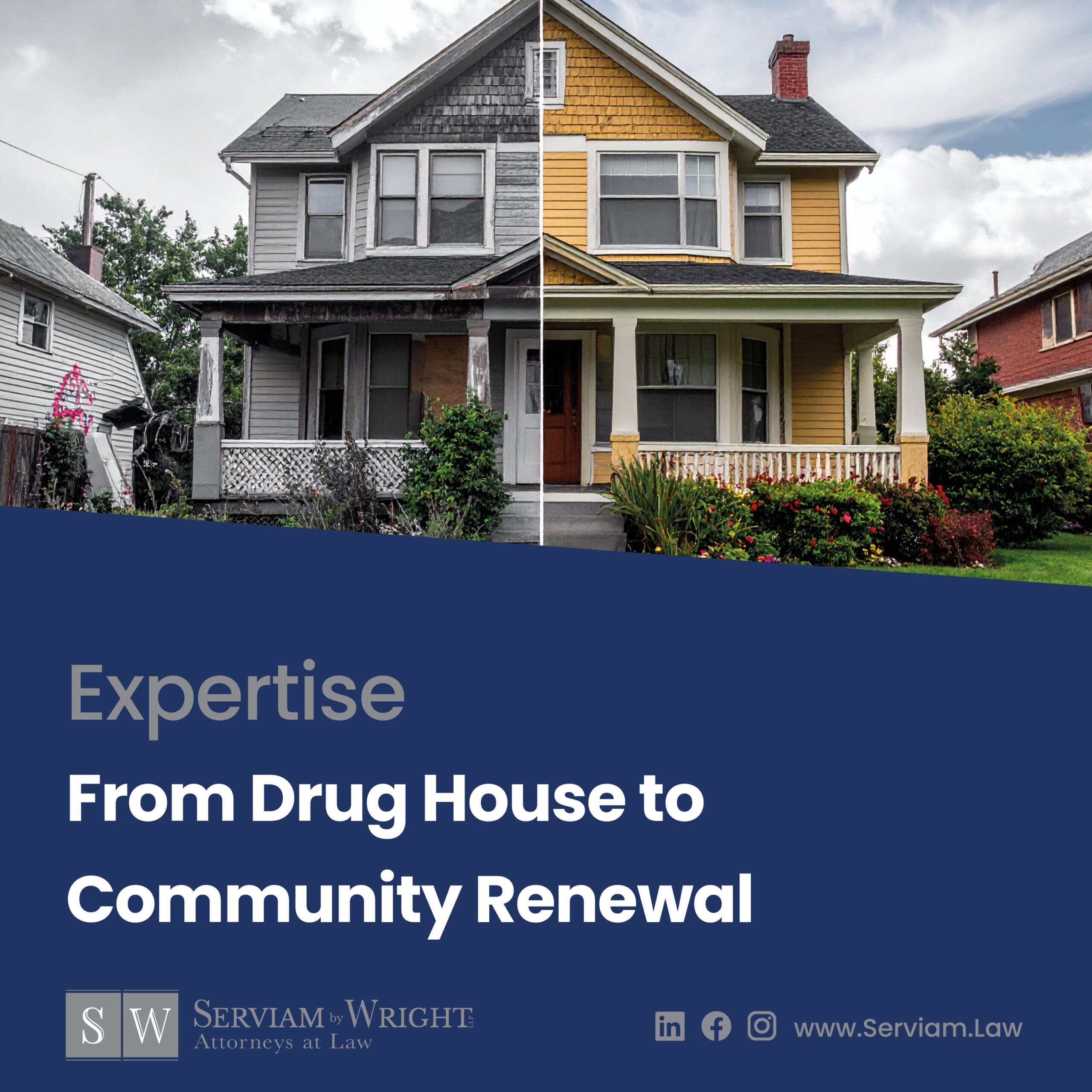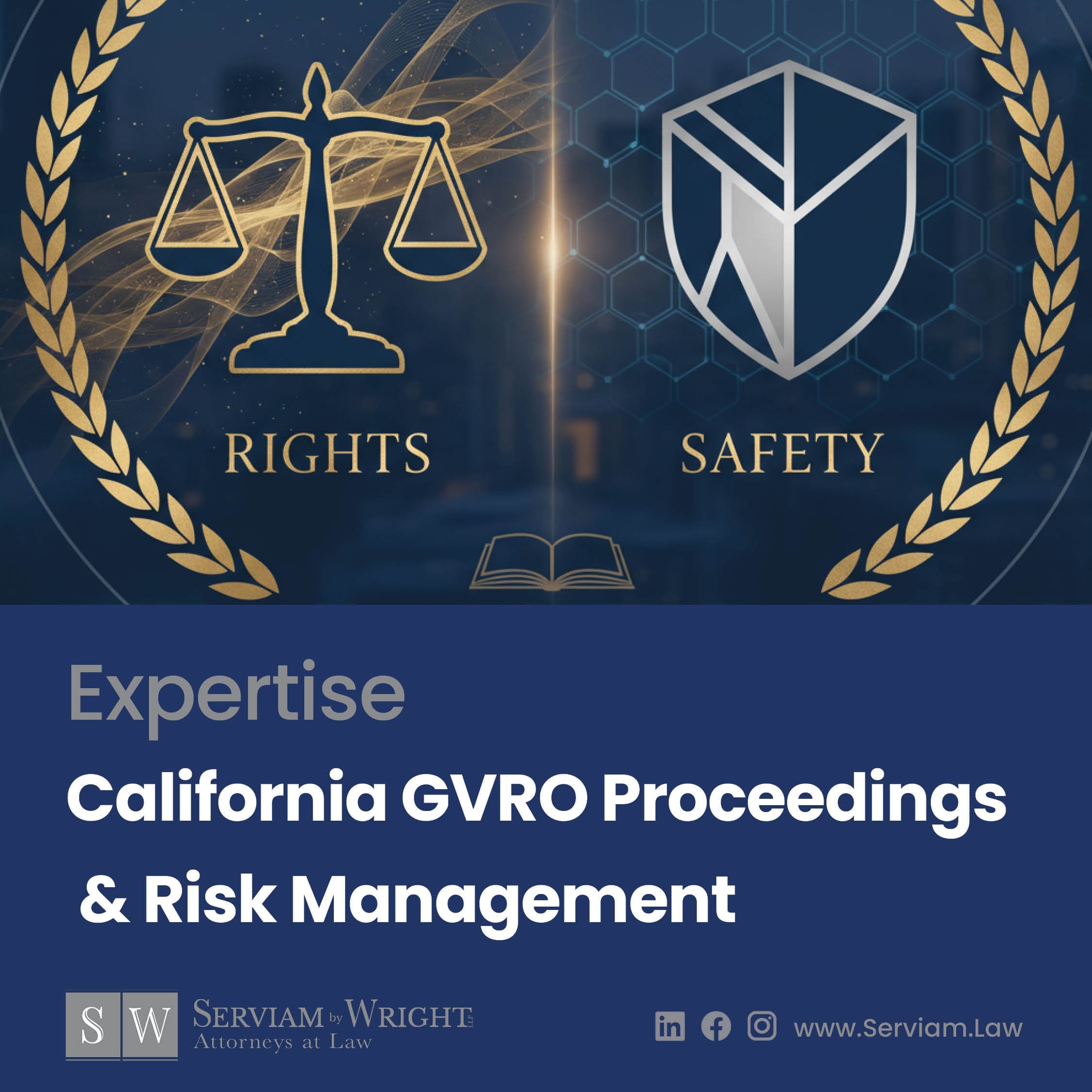At Serviam by Wright LLP, we help public agencies confront one of the most persistent challenges in communities across California: properties that have become hubs for illegal drug activity. These properties not only endanger public safety but also erode neighborhood stability and property values. Fortunately, California law provides strong tools to address the problem—chief among them, the Drug Abatement Act (DAA) and receivership remedies.
The Drug Abatement Act: A Powerful Legal Tool
Under California’s Health & Safety Code section 11570, any building used for unlawful drug activity is deemed a nuisance. This statute—known as the Drug Abatement Act—allows cities and counties, on behalf of the People of the State of California, to bring a civil action to enjoin, abate, and prevent the drug house nuisance.

This law applies broadly—any controlled substance activity in any building. Violations can lead to significant penalties, including:
- Drug house property forfeiture!
- Temporary restraining orders, preliminary, and permanent injunctions!
- Fines ranging from $500 to $10,000 per contempt violation!
- Jail sentences of 1–6 months for contempt!
- Vacating occupants from the property!
- Rent forfeiture!
- Cost recovery!
- Other damages!
These penalties send a strong message to property owners, lessees, and agents: ignoring illegal drug activity on their premises is not an option.
Beyond Penalties: Moving Toward Receivership
While injunctions and fines can be effective, they do not always provide a long-term solution. That is where receivership comes in. Under Health & Safety Code, if a building is found to have substantially dangerous code violations or conditions that contribute to drug activity, a court can appoint a receiver.
A receiver is a neutral third party authorized to take control of the property, rehabilitate it, and restore it to safe, lawful use. Key benefits of this approach include:
- No cost or liability to the city—rehabilitation costs are paid through the property itself.
- Faster than injunctions—receivership provides an efficient pathway to address systemic issues.
- Comprehensive remedy—not just stopping illegal activity, but restoring the property to habitable condition.
Why the Drug Abatement Act and Receiverships Are More Effective
While some law firms consider using the California Business and Professions Code’s Unfair Competition law to address violations, this approach is less effective. Unfair Competition actions require full-scale civil litigation—making them lengthy, costly, less effective, and more likely to escalate attorney fees than quickly resolve the problem.
By contrast, remedies under the Drug Abatement Act and the use of receiverships offer faster, more efficient, and results-driven solutions. These tools allow agencies to abate unlawful activity, recover costs, and rehabilitate problem properties far more quickly and effectively than traditional civil litigation.
Serviam’s Role in Protecting Communities
At Serviam, we work with municipalities and public agencies to strategically deploy the Drug Abatement Act alongside receivership remedies. Our goal is not only to shut down dangerous drug activity but also to transform blighted properties into assets for the community.
By leveraging these statutes, we help cities:
- Enforce nuisance laws
- Hold property owners accountable
- Reduce calls for service and improve public safety
- Rehabilitate properties for long-term neighborhood stability
Serviam: Your Partner in Community Protection
The Drug Abatement Act provides the legal authority to shut down drug-related nuisances, and receivership offers the means to restore properties for long-term community benefit. Together, these tools make real change possible.
At Serviam, we don’t just enforce the law—we partner with cities and public agencies to protect neighborhoods, rehabilitate blighted properties, and support safer, healthier communities.
This article should not be interpreted as legal advice; please contact a Serviam attorney for a consultation if you need legal advice about a specific matter. For more information about this article, contact Curtis Wright at Wright@Serviam.Law.





